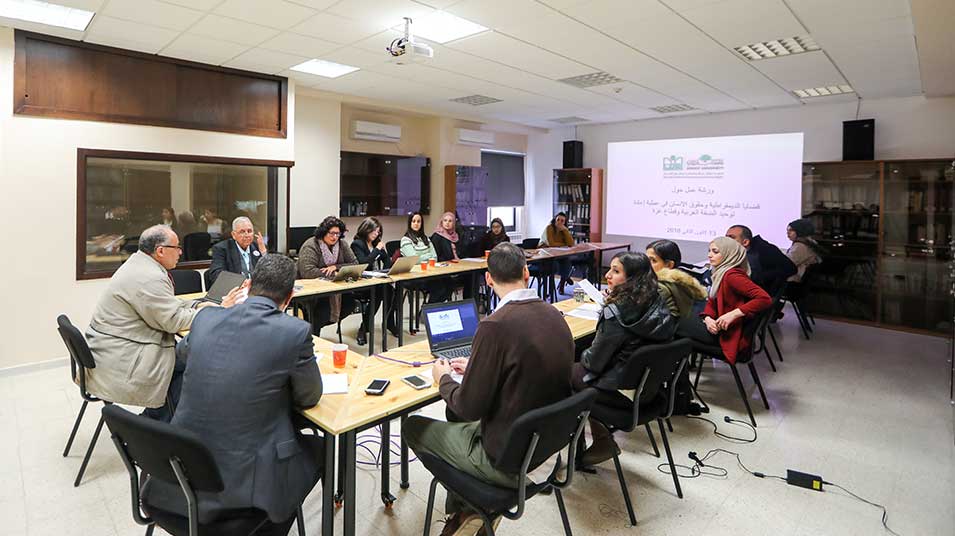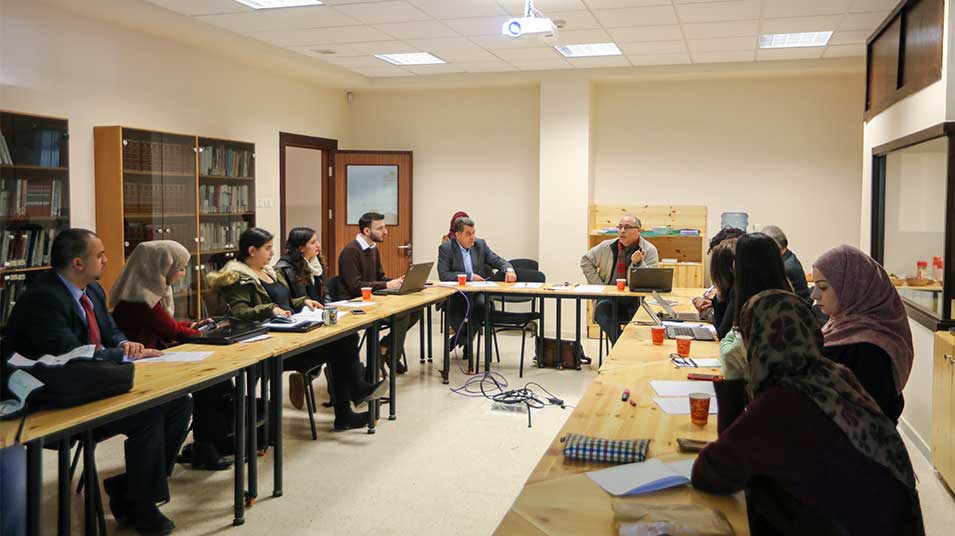Symposium examines democracy issue in Palestinian reconciliation process
The Muwatin Institute for Democracy and Human Rights at Birzeit University organized a workshop entitled “Issues of Democracy and Human Rights in The Gaza Strip-West Bank Reconciliation Process.” The workshop featured research papers that students produced as part of the Current Issues course, which is offered as an elective course in the Democracy and Human Rights Master’s Program in the Faculty of Graduate Studies.
Professor of Political Science and instructor of the Current Issues course Dr. Basem Ezbidi noted that part of the Democracy and Human Rights Program’s underlying philosophy is “to interact with and react to actual, concrete events that are unfolding before us. We’ve specifically chosen to examine ‘Issues of Democracy and Human Rights in The Gaza Strip-West Bank Reconciliation Process’ as it represents a major event and a way to bridge the gap between theory and practice for students.”
“During this course, we have sought to trace the democratic aspect of the reconciliation proceedings and their democratic components; the institutions linked with the process, such as the Legislative Council; and the will of the people in the midst of all of this. The other aspect of this process is connected with the legal facets, such as discussions of the legal concerns and priorities that the reconciliation process should manage,” said Dr. Ezbidi.
Students of the Current Issues course, added Dr. Ezbidi, produced four research papers that examined the four central points that are to be addressed by reconciliation process and highlighted the challenges that it faces. “Through this exercise, we try to assess the size of these challenges and how best to approach them – and, in turn, how these challenges reflect on the issue of national interest, the state, liberation, and the internal social coherence in Palestine.”
The papers, which, as Dr. Ezbidi pointed out, were “very good, considering the short timeframe that the students had to abide by,” revolved around the issues that arose as a result of the Palestinian division and its real-life effects on the social, economic, and political aspects of life in Palestine, as well as the utilization of mechanisms for transitional justice concepts and techniques.
The workshop comprised three sessions. Two papers were introduced in the first session, which were “Employees as a Tool Between Division and Reconciliation,” by Aseel Ibrahim, and “Health and Treatment in Palestine: A Right or a Privilege?” by Natalie Kasabri.
The second session also saw two papers presented. The first paper, by Duha Shwekeh, was entitled “The Gazan’s Human Rights and Electricity,” and the second paper, by Hanan Qa’oud, was entitled “Effectiveness of the Palestinian Civil Society’s Achievement of Transitional Justice.”
The workshop concluded with a discussion and the offering of some concluding remarks by the course instructor, Dr. Basem Ezbidi; director of the Muwatin Institute for Democracy and Human Rights, Dr. Mudar Kassis; professor of philosophy and cultural studies, Dr. Ghassan Khatib; and researchers Jihad Harb and Naser Abdillkarim.








